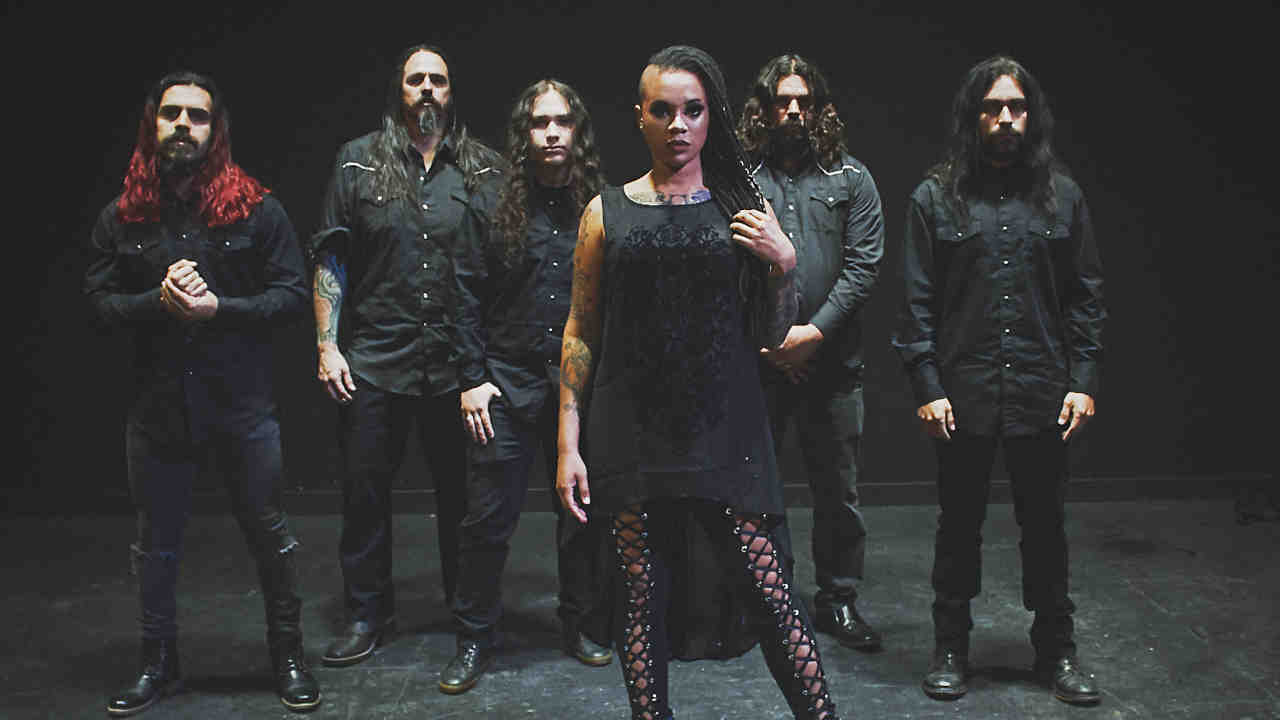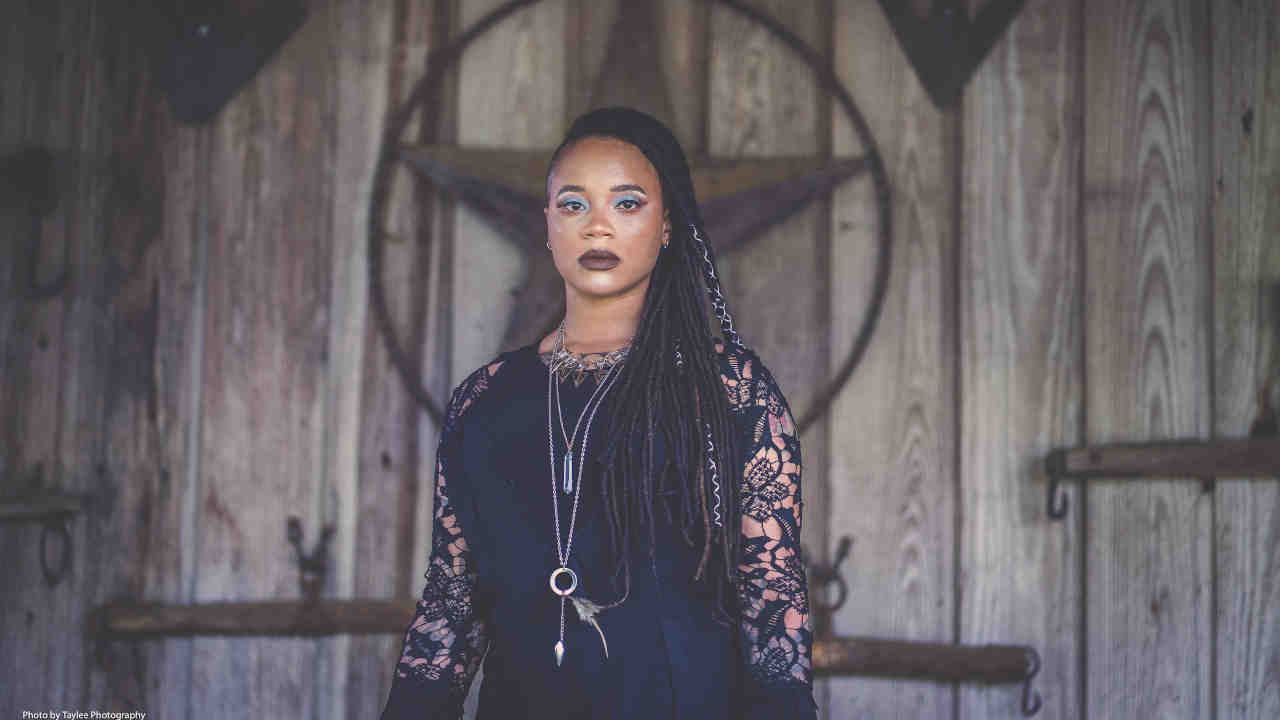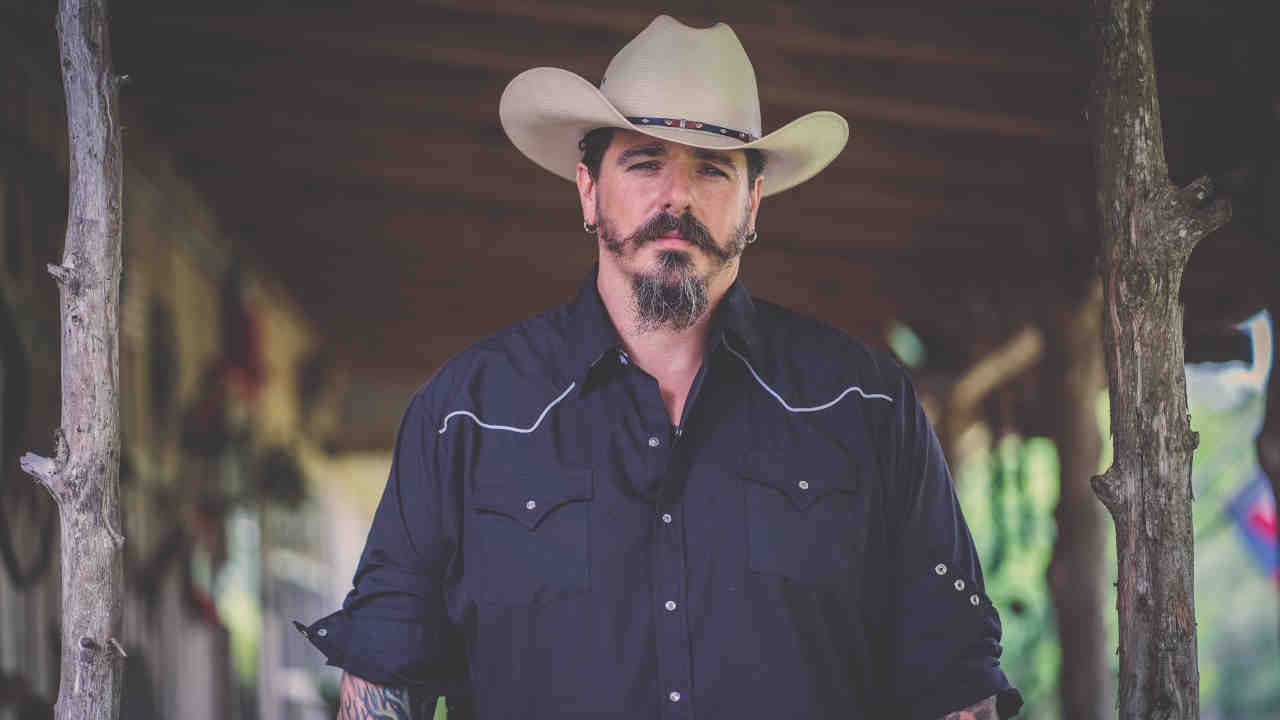How Oceans Of Slumber went to the edge and back to make the most vital prog metal record of 2020
Oceans Of Slumber are redefining what it means to be a prog metal band in 2020. But the future remains uncertain for them

Between 2018 and 2019, all the original members of Oceans Of Slumber left, bar drummer/songwriter Dobber Beverly. He’d been the self-professed ‘shot caller’ of the band since they started in 2011, and later insisted they bring in female singer Cammie Gilbert, against two of his bandmates’ wishes (“there is a stigma in metal towards a boys’ club,” he notes). But with Cammie on board, they evolved from a loose, directionless project into a slick, soulful, progressive proposition that deftly incorporated extreme metal.
Dobber and Cammie are now the heart of the band, and are also engaged to be married. Together with keyboardist Mat Aleman (who joined in 2018) and new members Jessie Santos (guitar/backing vocals), Alexander Lucian (guitar/backing vocals) and Semir Ozerkan (bass), they are about to release their fourth album. Ambitious, honest and encompassing the personal and the political, it’s their best yet, ranging from thunderous black metal to gnarly death metal and powerful operatic drama. The fact that it’s self-titled surely stands as a statement about who they are in 2020.
“It’s to show this fresh start and this new generation, this new beginning of Oceans,” explains Dobber, speaking in a Southern drawl from his home in Houston, Texas. “We’ve made very confident strides in what we’re doing and the kind of music we’re making.”
Cammie met Dobber in 2015 when her then-band supported Oceans at a benefit show. She remembers seeing him in the middle of the crowd, glaring at her. In fact, Dobber was blown away by her voice and asked Oceans’ original vocalist, Ronnie Allen, to get her details. She duetted on some of Oceans’ songs, before graduating to frontperson when they ran into difficulties with Ronnie.
- The best bluetooth speakers you can buy right now
- View the Best Apple Airpods deals
- The best phones for music lovers
- The best metal guitars 2020: Get ready to shred with our essential list
“Dobber is very serious; I found him quite intimidating,” she reveals today. “But watching him drum, then finding out he plays piano, then guitar, it was a cascade of my emotions falling into the band and my friendship with him. He’s one of the most impressive people I’ve ever met – he’s crazy musically talented, and he cooks amazing food! For me it was a pretty undeniable obsession that formed very quickly!”
Their friendship grew, but Dobber was married at the time. He calls it a “Walk The Line” moment, referring to the Johnny Cash biopic, where a mutual admiration and attraction developed between two musicians. He re-evaluated his life, ended his unhappy marriage, and the two got together.
“What Cammie and I fell into, was the fact that she had the same situation,” Dobber explains. “So when it became a friendship that was too interlinked, I was like, ‘I have to do the right thing to get out of the wrong situation.’ It was walking away from a long-term relationship that was shattered many, many years ago. And not repeating the things that I had done or gone through. There was an admiration for Cammie, and then the love that was between the two of us from respect and from everything else. It was very intense. I’m a very intense person…”
Sign up below to get the latest from Metal Hammer, plus exclusive special offers, direct to your inbox!
“He’s very driven and focused,” adds Cammie.
“To my own detriment,” Dobber shoots back.
“I can be very emotional and I have a lot of energy behind my emotions, and they’re not always focused,” confesses Cammie. “So it’s a good balance. It keeps me from being like a supernova.”

In the living-room-cum-studio of their farmhouse in the city, and at their studio an hour north, Dobber and Cammie crafted Oceans Of Slumber. Dobber, who also has extreme metal side-projects Malignant Altar and Necrofier, composes the songs before bringing in the other members for the finishing touches. He gives Cammie a title or writing prompt to focus her attention on the lyrics. There are immersive stories of grief, depression, womanhood and love, but arguably the most intense song is Pray For Fire, which inadvertently captured the zeitgeist. Starting off chilled enough, it peaks with a spoken-word monologue that sounds like an early Daenerys Targaryen issuing commands to free a city.
Dobber explains it’s meant to be an inspiring anthem about facing your fears and challenging the status quo, led by a figurehead who’s working for the greater good. While it was coming together, they watched a documentary on the ship-breaking industry in India, where impoverished workers salvage metal and wood from huge container ships under treacherous conditions.
“You look across history, and there are people that are held down, and it creates such anger, and we do the same thing over and over again,” says Cammie. “I wanted a song that was empowering to those people that felt forgotten or lesser-than or oppressed, whether by socio-economic standing, or race, or war. It’s a full call to arms and a call for flames. Obviously with how things changed, it feels like it’s become a bit more literal than the song was meant to be, but I don’t necessarily mind adding fuel to that fire.”
She’s talking about the upsurge of anger following the murder of George Floyd, and the subsequent momentum of the Black Lives Matter movement, which transpired after the song was written. There have been protests downtown at Discovery Green, and for Cammie it’s meant a change in mindset as she comes to terms with current and historical injustices.
“My day-to-day life has not changed, but how I view things around me has changed quite a bit,” she explains. “I feel like the most impacting thing has been the amount of history I’ve learned about the US. I’m not surprised by the things I find out, but it’s very disheartening and it makes me really sad. It’s kind of a peculiar feeling, because you’re a modern person and you have this modern life, and then you find out this sad history that perpetuates so many things in your life now, and there’s a lot of cognitive dissonance.”
This examination of the past and the present has spurred her into action. “It’s taking on a responsibility that maybe I haven’t felt the need to do before, to not necessarily be an activist, but to make sure that I’m informed, and I speak correctly, and I give good information, and I show that I do care and that I do have opinions about these issues,” she says. “But above all else, we have a generation of younger people that are seeing this and growing up through this. I think it’s important that people in leadership roles are spreading positive messages.”
Another standout song with similar themes is the blastbeat-ridden The Adorned Fathomless Creation – a title from Dobber that describes the hypocritical and indefensible treatment of black people in America. He’d been thinking about how basketball player LeBron James pours money into education – he has established a school in his hometown, provided kids with school supplies and funded college places - yet faces racism in his own country.
“Adornment is the robing and the royalty, but to a big portion of America, he’s just some black person, some racial slur,” says Dobber. “I’d set on this idea with Cammie, and I’m like, you are one of these people. And on top of being heralded and lauded and loved and worshipped, simultaneously you are also some creation of America that America hates.”

Dobber credits touring the world with opening his mind to the issues endemic in The Land Of The Free, and as COVID-19 rises significantly in his conservative state, he’s concerned about whether the live shutdown could spell the end of the band. His former members quit due to family and financial concerns, and he doesn’t want the new line-up to be under strain.
“The worry is that something like this could make this virtually our last record, and by that I mean we could have half of the band drop out,” he frowns. “Because if we’re shut down in the States for a year or two years, that can fully dishearten a musician.”
Life is hard enough for bands in a country that prioritises profit over people, and Dobber has balanced music with his 20-year career in removals. “You’re always juggling trying to be alive here,” he explains. “We don’t have public transportation, so you have to have a reliable car. It’s hard, and I have a full-time job, I have a kid, I’ve got my band, I’ve got everything else, and it’s 90 to nothing, constantly. And the only way that we’re able to continue doing the things that we do is touring, and we can’t tour. This is going to be far more detrimental than venues closing in our cities, which they already are. It’s going to run off or have lasting effects on the people who populate this industry.”
Now is the time to support music, especially when it’s this crushing, tender and illuminating, not to mention slickly mixed by Swedish legend Dan Swanö. And Dobber has a closing message to people who are stuck in metal’s boys’ club. “For those hold-out stalwarts, it is OK for you to listen to a metal band with a woman in it,” he says. “It is OK for you to listen to a metal band with a black woman in it. So please do be open-minded and have these experiences, because bands like us want and need an audience.”

Eleanor was promoted to the role of Editor at Metal Hammer magazine after over seven years with the company, having previously served as Deputy Editor and Features Editor. Prior to joining Metal Hammer, El spent three years as Production Editor at Kerrang! and four years as Production Editor and Deputy Editor at Bizarre. She has also written for the likes of Classic Rock, Prog, Rock Sound and Visit London amongst others, and was a regular presenter on the Metal Hammer Podcast.
